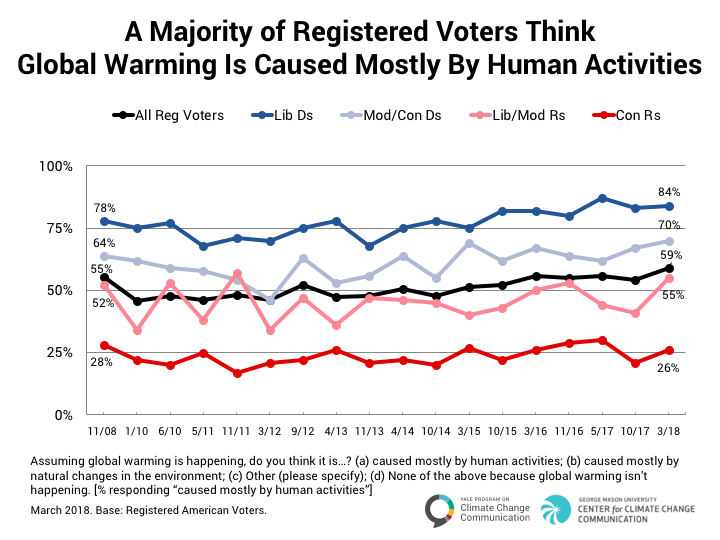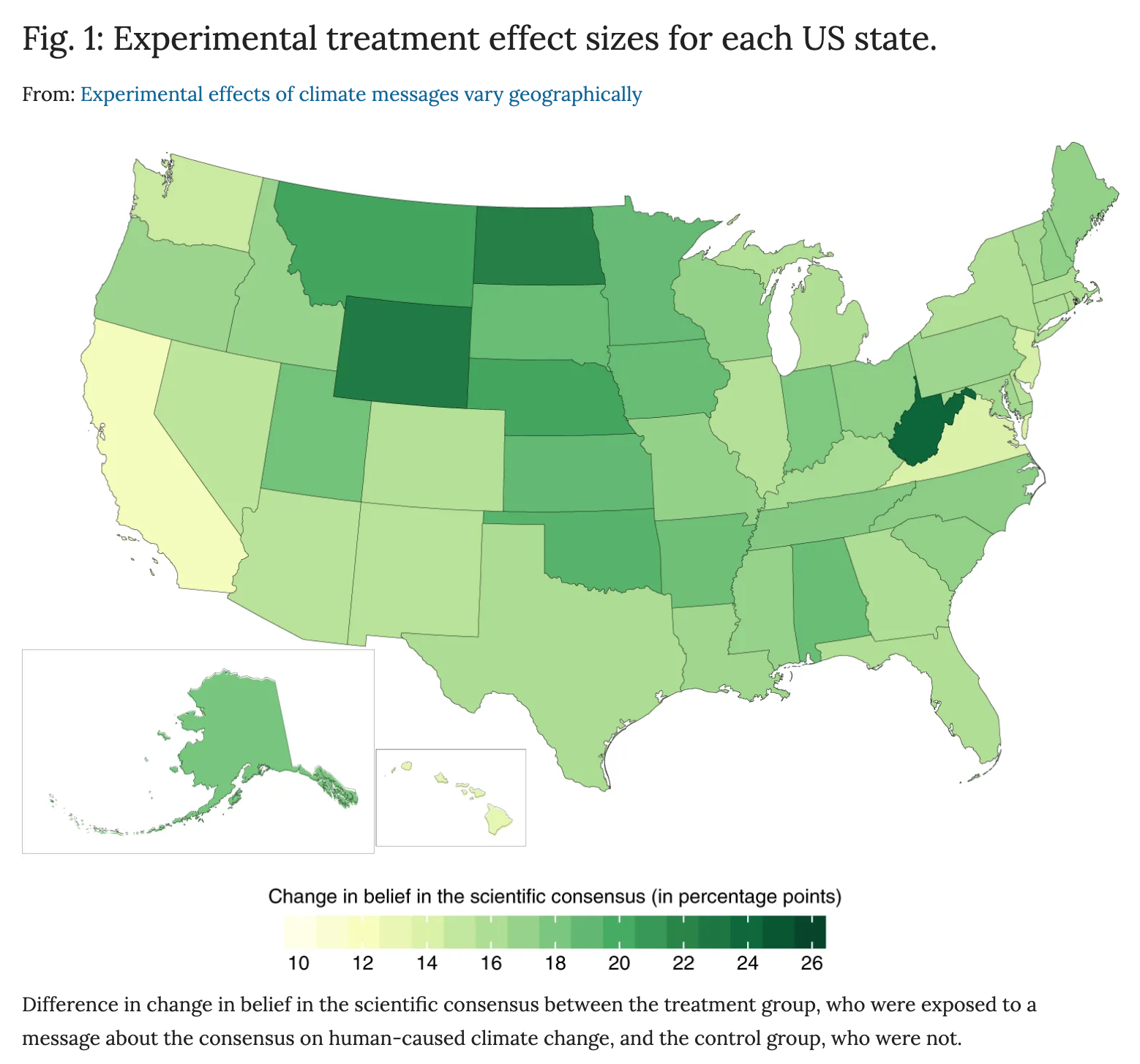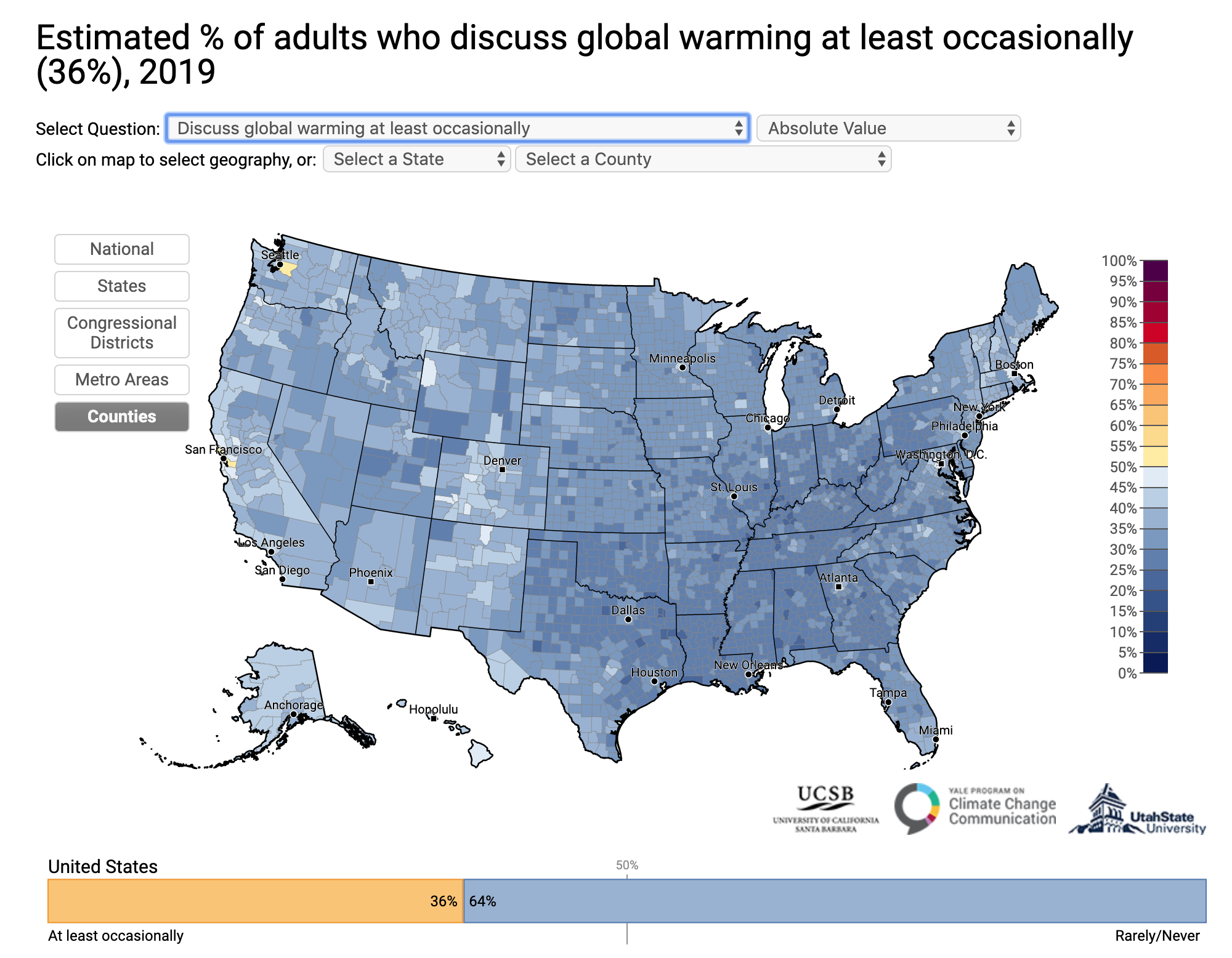20 November 2019
Having “The [Climate Change] Talk” with your family
Posted by Shane Hanlon
By Shane M Hanlon
[Note: I originally posted this last year around this time. We’ve had a whole new year of studies and while some things haven’t changed, much has (in a good way).]
Thanksgiving can be a time for food, football, and family. And sometimes…uncomfortable family chats, especially around science. We live in a nation where there are disconnects between understanding and acceptance of major scientific issues such as GMOs, evolution, vaccinations, and (especially relevant to AGU scientists*) climate change.
With climate change specifically, politics plays a role. Over half of Americans accept human-induced climate change, as well as a majority of registered voters; however, Democrats are driving that positive trend with Republicans dipping below the 50% line.

From: Leiserowitz, A., Maibach, E., Roser-Renouf, C., Rosenthal, S., & Cutler, M. (2017). Climate change in the American mind: May 2017. Yale University and George Mason University. New Haven, CT: Yale Program on Climate Change Communication.
And it turns out that education isn’t the problem (or the deficit model – the idea that folks just don’t have enough information to make informed decisions). We might expect that greater education would improve the likelihood that folks would accept the science behind climate change, regardless of political affiliation. However, work has shown that with increased education, polarization increases, with Republicans digging in deeper on denial and Democrats on acceptance.

From: Hamilton, L. C., Bell, E., Hartter, J., & Salerno, J. D. (2018). A change in the wind? US public views on renewable energy and climate compared. Energy, Sustainability and Society, 8(1), 11.
So, what do we do? How to we talk to our friends, neighbors, and family members who have different (and incorrect) views about science, specifically climate change? Well, depending on your cup of tea, we have references!
First, there’s some encouraging research showing that talking to folks about climate change can make a difference. This Nature Climate Change paper showed that talking about climate change can increase acceptance by an average of 16%. However, the effectiveness of climate change messaging varied geographically. In areas that already had a high acceptance, the change was very little. Conversely, in areas where acceptance was low (e.g. West Virginia), the change was closer to ~24%.

Even though we have evidence that talking can make a difference, most of us aren’t doing it.

What a better time to start talking about climate change (or science more broadly) than when many of us are with families over Thanksgiving and the winter holidays.
It’s really important to frame your message (climate-change related or not) depending on your audience. We’ve compiled some resources to help you:
- Confronting climate change in the age of denial
- Attitudes Towards Science
- This Is The Scientific Way To Win Any Argument (And Not Make Enemies)
- Hearts or minds? Identifying persuasive messages on climate change
- How to persuade people that climate change is real
- 6 principles to help IPCC scientists better communicate their work
- The ‘Alice in Wonderland’ mechanics of the rejection of (climate) science: simulating coherence by conspiracism
- Using narratives and storytelling to communicate science with nonexpert audiences
- Lost in the Tweetstorm: The Truth About Climate Doesn’t Change with the Weather
- Understanding audiences: Making public perceptions research matter to marine conservation
We’ve been compiling a list of climate-change related studies that showcase success in shifting attitudes around climate change. From health to nostalgia to beer, we hope that you’ll find a topic that will aide you in your discussions. Good luck!
- How Much Hotter Is Your Hometown Than When You Were Born?
- Not Just Funny After All: Sarcasm as a Catalyst for Public Engagement With Climate Change
- Decreases in global beer supply due to extreme drought and heat
- Talking to young people about climate change? Try to make them laugh
- How Americans respond to information about global warming’s health impacts: Evidence from a national survey experiment
- Climate communication for biologists: When a picture can tell a thousand words
- Climate change damaging male fertility
- Warmer winter temperatures linked to increased crime
- Impact of anthropogenic climate change on wildfire across western US forests
–Shane M Hanlon is the Program Manager for AGU’s Sharing Science Program. Find him on Twitter @ecologyofshane.
—
*If you’re wondering where AGU stands on climate change, here are our position statements:
Human-Induced Climate Change Requires Urgent Action
Climate Intervention Requires Enhanced Research, Consideration of Societal and Environmental Impacts, and Policy Development


 The Plainspoken Scientist is the science communication blog of AGU’s Sharing Science program. With this blog, we wish to showcase creative and effective science communication via multiple mediums and modes.
The Plainspoken Scientist is the science communication blog of AGU’s Sharing Science program. With this blog, we wish to showcase creative and effective science communication via multiple mediums and modes.